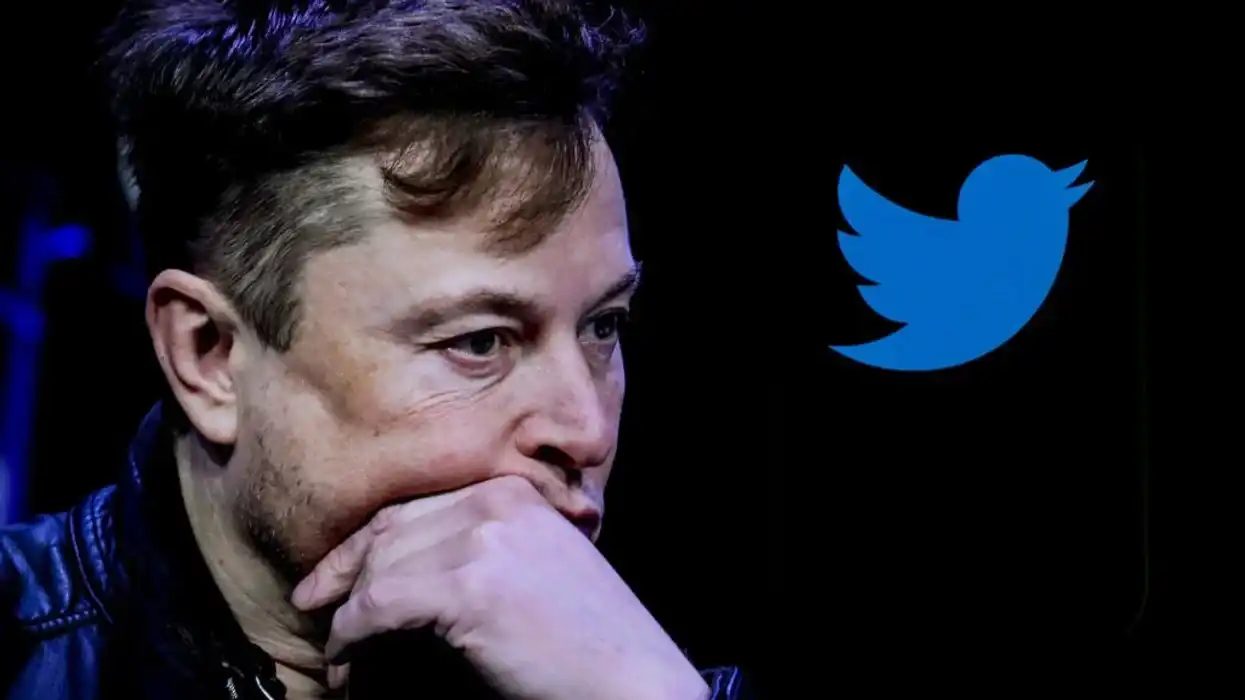
Muhammed Selim Korkutata / Anadolu Agency

Direct messages on Twitter may not have been as private and secure as users were once led to believe, particularly by the company's previous leadership.
In a two-part interview that will air on Fox News Monday and Tuesday, Tucker Carlson pressed Twitter CEO Elon Musk on whether the U.S. government had access to users' private messages.
Musk answered in the affirmative, noting that this discovery floored him.
Since officially taking control of Twitter in October, Musk has shared various damning insights into both his predecessors' apparent collusion with state actors and the extent of government meddling on the platform.
Through the Twitter Files, he has already helped to illuminate politically motivated censorship campaigns, coordinated efforts by the FBI and Twitter to shape the public discourse, and political interference by partisan agents that has possibly changed elections and transformed the political landscape in the United States.
Musk told Carlson, "The degree to which government agencies effectively had full access to everything that was going on on Twitter blew my mind," said Musk. "I was not aware of that."
Carlson asked, "Would that include people's DMs?"
"Ah, yes," responded the tech magnate.
It is presently unclear whether Musk was referencing court-ordered inspections of users' private messages or whether this amounted to a rogue violation of Twitter users' privacy by government forces.
If the latter, then the U.S. will join at least one other nation that likely exploited the platform's lack of encryption.
An Egyptian national who worked as a media partnership manager for Twitter was convicted last year of spying for Saudi Arabia, reported Bloomberg. Ahmad Abouammo received luxurious gifts and cash bribes in exchange for turning over private data belonging to Twitter users allegedly critical of Saudi ruler Mohammed bin Salman.\u201chttps://t.co/BilzqLGZsC\u201d— Tucker Carlson (@Tucker Carlson) 1681671317
Per Musk's suggestion, government agents perusing private messages may also have benefited from the company's alleged inability or refusal to dump sensitive data users wanted deleted.
Pieter “Mudge” Zatko, formerly a security lead at Twitter, filed a whistleblower complaint in July alleging that at the time of his employment, "it was not possible for Twitter to be compliant with a request that their user data be deleted."
NBC News reported that for private messages to be deleted, everyone involved would have to consent. However, according to Zatko and others, even this consent wasn't enough: Private messages and the information therein might have remained for weeks or longer after the required deletion requests were filed in full.
In November, Musk indicated an interest in encrypting direct messages on the platform, reported the Verge.
"We want to enable users to be able to communicate without being concerned about their privacy, [or] without being concerned about a data breach at Twitter causing all of their DMs to hit the web, or think that maybe someone at Twitter could be spying on their DMs," said Musk. "That’s obviously not going to be cool and it has happened a few times before."
Musk's predecessors admitted to spying on users' DMs, but suggested they had not done so without cause.
Rogan asked Dorsey, "Do you read direct messages?"
"We don't read direct messages," answered Dorsey.
Gadde interjected to say, "We don't read them unless someone reports the direct message to us that they have received."
"And so you read their direct messages that they send to you?" asked Rogan.
"If you have a direct message and someone says something terrible in them, like you received a death threat and you report that to us ... then we would read it," said Gadde.
Gadde suggested that Twitter staff only had access to direct messages in the context of reports received, but dodged Rogan's question on whether they were accessible if reports had not been filed.
\u201cHow the hell does the head of Legal, Policy, and Trust at Twitter not know if she could access someone's direct messages?\n\nThis is in honor of @elonmusk and @bariweiss releasing the Twitter Files (Part 2) yesterday. Credit to @joerogan, @Timcast and @libsoftiktok\nAlso @KimDotcom\u201d— Marauder Magazine (@Marauder Magazine) 1670626992